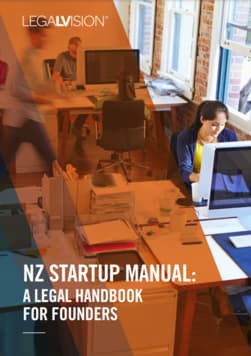In Short
-
Conduct thorough market research, including demographics, competitors, and regulations, before selecting an Asian country.
-
Adapt your products or services to align with local cultural norms and preferences.
-
Understand and comply with local visa requirements and employment laws when hiring talent.
Tips for Businesses
When expanding your New Zealand startup to Asia, tailor your approach to each country’s unique market conditions. Research local customs and regulations to ensure cultural sensitivity and legal compliance. Consider different market entry strategies, such as exporting, licensing, or joint ventures, to find the best fit for your business.
As a startup owner, you may have always imagined expanding your startup to Asia. Now that time is here, and you can finally fulfil your dreams. In recent years, business expansion to Asia has become very common. Expanding to Asia has many benefits, such as a large customer base and the potential for your startup to grow further. So, once you overcome the language barriers, nothing can stop you from conquering Asia’s markets. This article will outline some key aspects to consider when expanding your startup to Asia.
Choose Your Country
Asia is a vast continent, with lots of potential and many countries. To understand each country’s potential markets, you can obtain a market entry report. This report will outline:
- market demographics;
- competitors;
- relevant pricing;
- local customs;
- regulations; and
- incentives that may suit your business, such as high-skilled labour.
The market entry report can also outline the best way to enter certain markets. For example, you may be better off exporting to some markets, while others you should licence your services in.
Along with analysing the market entry report, you can also consider your hopes for your startup and where you want to go. Furthermore, you can also determine where your product or service may fit into.
Know the Culture
Cultural differences can affect how you market your products or deal with local staff. It is vital to research the local culture to smoothly integrate your business into the country and avoid future problems.
Continue reading this article below the formVisa Requirements
Each country will have visa requirements and processes that you must consider if you intend to have a local in-person presence. Thus, you will need to research your chosen country’s requirements.
To apply for the correct visa for your startup, you should contact the Immigration Department for your chosen country.

Essential reading for anyone building their startup. This free guide includes practical advice and seven real-life case studies.
Hiring Talent
When expanding into a foreign region, you may need to hire local employees to help run and manage your business. However, attracting talent can be challenging as you need to convince potential employees to work for you rather than a local company that may have been there for years. In addition, you also may need to find employees who are fluent in both their native language and English to connect with potential customers and you better.
Entering the Market
Next, you need to choose an expansion strategy that will allow a seamless integration into the foreign country while minimising your costs. You can enter international markets by:
- exporting your products and services into the Asian country;
- franchising;
- licensing the right to use your product or service to foreign businesses;
- joint ventures with a local partner;
- partnerships;
- acquiring a foreign business; or
- greenfield ventures or subsidiaries.
Preparing for Legal Obligations
In New Zealand, there are several consumer and commercial laws that you need to comply with when conducting business in New Zealand. Your chosen Asian country will have its own laws and regulations that you will need to abide by. You will need to get local advice to ensure your business complies with those laws and regulations.
Key Takeaways
Expanding your startup to the Asia Pacific region can be exciting and worthwhile. However, during your expansion, you should:
- choose your target countries carefully;
- research the local culture;
- research visa requirements;
- begin to hire foreign talents and comply with employment laws;
- decide on how you will enter the foreign market; and
- prepare for legal obligations.
LegalVision cannot advise on expanding your New Zealand startup to Asia. However, if you have other general legal needs related to your startup, you can contact our experienced startup lawyers to assist as part of our LegalVision membership. You will have unlimited access to lawyers who can answer your questions and draft and review your documents for a low monthly fee. Call us today at 0800 005 570 or visit our membership page.
Frequently Asked Questions
When choosing a country, you must consider where you want to lead your startup and for what reason. Therefore, you must understand what industry your startup is in and what employees you are looking for. To best understand the market potentials, you can acquire a market entry report which will give you a deep analysis of the markets you may want to expand into.
Researching local culture is essential, and without this, your startup may fail in a foreign country. Asian countries often have a unique culture. For instance, in Japan, it is custom to bow when meeting someone for a business meeting as a sign of respect. By understanding local cultures and customary behaviours, you can adapt your startup in a way that will appeal to the local market.
We appreciate your feedback – your submission has been successfully received.












